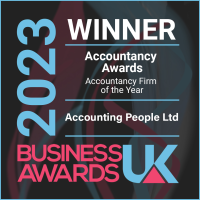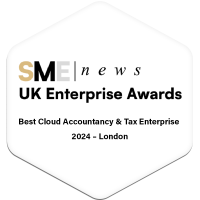Understanding Self-Assessment for Freelancers in the UK
If you are a freelancer in the UK, managing your taxes can sometimes feel overwhelming. Understanding the Self-Assessment system is essential to keeping on top of your obligations and staying compliant with HMRC requirements.
This guide explains the key aspects of Self-Assessment for freelancers, from registering as self-employed and completing tax returns, to claiming allowable expenses, paying taxes, and keeping track of deadlines.
Registering as Self-Employed
The first step in managing your freelance career is to register as self-employed with HMRC. This applies whether you are working as a sole trader or undertaking freelance projects.
To register, visit the HMRC website and complete the online registration form, providing details such as:
- Personal information
- Nature of your business
- Estimated income
Once registered, HMRC will issue you a Unique Taxpayer Reference (UTR) number, which you will use for all correspondence regarding your tax affairs. Registration is not only a legal requirement, but it also allows you to access certain tax reliefs and benefits.
Need help with self assessment?
Contact usWhat Self-Assessment Means for Freelancers
Self Assessment is HMRC’s system for reporting income and calculating the tax you owe. Unlike employees, freelancers are responsible for:
- Calculating their own tax liability
- Filing an annual Self-Assessment tax return
- Declaring all sources of income (including investments or rental income)
To ensure accuracy, it’s essential to maintain detailed records of income and expenses throughout the year.
Information Required for HMRC
When completing your Self Assessment, HMRC requires:
- Income details from freelance work or consultancy
- Allowable business expenses
- Additional income (such as rental or investment income)
Keeping accurate, organised financial records throughout the year makes this process significantly easier and reduces the risk of errors.
Allowable Expenses for Freelancers
Freelancers can reduce their taxable income by claiming legitimate business expenses , but these must meet HMRC’s “wholly and exclusively” test. In simple terms, an expense is allowable only if it is incurred entirely for the purpose of your trade. If there is a private or non-business element, the claim may be disallowed.
HMRC also warns against duality of purpose, where an expense serves both business and personal reasons. For example, buying a suit for client meetings is not allowable because it also provides personal benefit, whereas branded workwear or protective clothing is generally acceptable. Similarly, travel costs for client visits are allowable, but ordinary commuting is not.
Common examples of allowable expenses include:
- Office supplies and equipment
- Professional memberships or subscriptions
- Business-related travel (excluding commuting)
- Marketing and advertising costs
- Website and hosting fees
- A proportion of household bills if you work from home
Always keep receipts and detailed records to substantiate claims. Where an expense has both business and private elements, only the identifiable business portion can be claimed. For instance, if you use your car for both work and personal journeys, you can apportion costs based on actual business mileage.
Tip: If you prefer not to track and claim individual expenses, you can use the £1,000 trading allowance instead. This lets you earn up to £1,000 tax-free without declaring expenses. If your income exceeds £1,000, you must report all earnings and either claim actual expenses or deduct the allowance.
Key principle: If you would not have incurred the cost without your business, it likely qualifies. If in doubt, seek professional advice to avoid HMRC challenges.
Paying Taxes as a Freelancer
As a freelancer, you’re responsible for filing a Self Assessment tax return each year and paying any tax due. Here are the key points to keep in mind:
- Submission deadline: Online tax returns must be filed by 31st January following the end of the tax year.
- Tax calculation: Income tax is charged on profits above the personal allowance (currently £12,570 for 2025/26).
- National Insurance: Contributions may also apply, depending on your profit level.
- Payments on account: If your tax bill is over £1,000, you may need to make advance payments in January and July.
Staying organised throughout the year, by keeping accurate records and setting aside funds for tax — makes completing your return far easier and helps avoid penalties.
Earnings Before Tax
Freelancers can earn up to their personal allowance (£12,570 for 2021/22) without paying income tax. However, National Insurance contributions may still be payable even if you remain below this threshold.
For tailored guidance based on your personal situation, seeking professional advice is highly recommended.
National Insurance Contributions (NICs)
Self-employed individuals pay NICs to qualify for benefits such as the State Pension. For 2025/26:
- Class 2 NICs: No longer compulsory if profits exceed £6,845, HMRC credits your State Pension entitlement automatically. If profits are below this, you can pay voluntary Class 2 (£3.50/week) to maintain your State Pension entitlement.
- Class 4 NICs: Paid through Self-Assessment:
- 6% on profits £12,570–£50,270
- 2% on profits above £50,270
Keeping your State Pension entitlement intact ensures access to future benefits.
Key Deadlines for Freelancers
Freelancers must stay on top of HMRC deadlines to avoid penalties:
- 31st January – Deadline for online Self Assessment submission and payment of any tax owed.
- 31st July – Payment on account deadline (if applicable).
- 5th October – Deadline to register as self-employed in your first year.
Keeping these dates in mind ensures smooth financial management and avoids unnecessary charges.
Final Thoughts
For freelancers in the UK, understanding Self Assessment is vital for maintaining financial control and HMRC compliance. By registering on time, keeping accurate records, and claiming eligible expenses, you can manage your tax obligations with confidence.
If you are uncertain about any aspect of your Self Assessment or would like expert support, our team at Accounting People can provide practical guidance and seamless tax management services.



